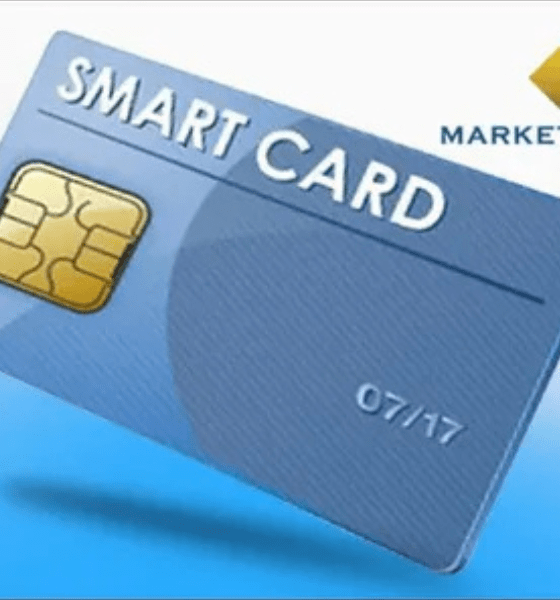In the digital age, the way professionals network and share information has changed dramatically. Traditional paper business cards, once the cornerstone of professional networking, are quickly being replaced by digital business cards. These virtual cards provide a convenient, eco-friendly, and highly efficient way to exchange contact details. Whether you’re attending a conference, meeting with clients, or connecting with prospects, digital cards are transforming the way we make first impressions.
This blog will explore the benefits of digital cards for professionals, the features they offer, and how they can elevate your networking efforts while enhancing your personal and professional branding.
What Are Digital Cards for Professionals?
Digital cards, also known as virtual business cards or e-business cards, are electronic versions of traditional paper business cards. These cards are stored on your smartphone, computer, or through a digital platform, making them easy to share and update. Unlike paper business cards, digital cards offer various features like clickable links to websites, social media profiles, portfolios, and even videos that provide a richer, more interactive experience.
Some of the most advanced digital business cards also utilize NFC (Near Field Communication) technology. This allows users to share their information by simply tapping their card against an NFC-enabled device, streamlining the process of networking and making it quicker and more seamless.
Why Should Professionals Switch to Digital Cards?
- Convenience and Accessibility
Digital cards are easily accessible from smartphones, tablets, or computers. You no longer have to worry about running out of business cards or scrambling to find one when needed. With a digital card, all your contact information is stored in one place and can be shared in seconds, whether you’re at an in-person event, during a video call, or through a social media platform.
- Eco-Friendly and Sustainable
Traditional business cards require paper, ink, and plastic, contributing to environmental waste. Digital business cards, on the other hand, are entirely paperless, reducing your carbon footprint and helping the environment. Since digital cards don’t need to be printed or reprinted, they also help you save money on production costs.
- Instant Updates and Accuracy
One of the most significant advantages of digital cards is the ability to update your contact information in real time. If you change your phone number, email address, job title, or company, you can make the update on your digital card and instantly share the most up-to-date information with your network. This ensures that your contacts always have the latest details without the need for new printouts.
- Better Networking and Lead Generation
With features like clickable links to your website, portfolio, social media profiles, or even videos, digital cards enhance the networking experience. These multimedia elements help prospects and clients better understand your offerings, and they can engage with your digital presence directly from your card. Additionally, many digital card platforms offer analytics, allowing you to track how often your card is viewed, clicked, or shared, providing valuable insights into your networking efforts.
- Increased Professionalism
Using digital cards demonstrates that you’re tech-savvy and up-to-date with modern business practices. It signals that you are forward-thinking and innovative, which can be a strong selling point in industries where digital transformation and technological proficiency are valued. Digital cards also allow for greater customization, enabling you to tailor your card to reflect your professional branding in a way that traditional paper cards cannot.
Key Features of Digital Cards for Professionals
- Customization and Branding
One of the biggest advantages of digital cards is the ability to fully customize your card to match your personal or company branding. You can incorporate your logo, use specific colors, and choose fonts that align with your brand’s identity. You can also add more personalized details such as a professional bio, testimonials, and even images or videos that can leave a lasting impression on your contacts.
- Multimedia Integration
Unlike paper business cards, which only allow for basic information like your name, job title, and contact details, digital cards can include multimedia elements like video introductions, portfolio links, and even audio messages. These features help you stand out from the crowd and allow for a more interactive and engaging experience for those you share your card with.
- QR Codes and NFC Compatibility
Many digital business card solutions include QR codes or NFC technology, which makes sharing your card as simple as a quick scan or tap. By incorporating these technologies, you can instantly share your contact information without the need for manual entry. This is especially helpful in networking scenarios where you may meet a large number of people in a short amount of time.
- Analytics and Tracking
Some digital card platforms come with built-in analytics that allow you to track who has viewed your card, clicked on your links, and shared your details. This data can be invaluable for lead generation and follow-up, allowing you to measure the success of your networking efforts and adjust your approach accordingly.
- Cloud-Based and Always Up to Date
Digital business cards are often cloud-based, which means they are accessible from any device with an internet connection. This ensures that no matter where you are, you can always access and share your digital card. Since digital cards are linked to the cloud, you can also make real-time updates to your contact information, ensuring your card is always current and accurate.
Popular Platforms for Creating Digital Cards
Several platforms and apps are available for creating digital business cards, each offering a variety of features to help professionals build their brand and network effectively. Here are some of the most popular options:
- HiHello
HiHello is one of the most popular platforms for digital business cards, offering customizable templates and a wide array of features. With HiHello, you can easily create and share your card through a simple link, NFC tap, or QR code. You can also track how your card is performing using its built-in analytics.
- Linq
Linq is another top choice for creating digital business cards. It offers a user-friendly interface and the ability to customize your card with links to your social media profiles, website, and portfolio. Linq also offers a smart NFC card that can be used to share your details with a simple tap.
- Vistaprint Digital Cards
Vistaprint, known for its traditional business cards, has also ventured into the world of digital cards. Their platform allows you to design and customize a digital card that can be shared through QR codes or NFC technology. Vistaprint also offers cloud storage for your cards, making them accessible from any device.
- Popl
Popl is an easy-to-use app for creating and sharing digital business cards. It supports NFC, QR code scanning, and direct links, making it a versatile tool for professionals looking to network and share their contact information effortlessly. Popl also offers a customizable design, allowing you to add logos, images, and social media links to your card.
- Zapped
Zapped is a digital card solution focused on creating interactive business cards with various multimedia elements. It also includes features like NFC technology and linkable content to social media platforms, portfolios, and websites. Zapped is perfect for creative professionals looking to showcase their work directly from their business card.
Best Practices for Using Digital Cards
- Keep Your Card Simple and Professional
While digital cards offer a variety of customization options, it’s essential to keep your design simple and professional. Avoid overloading your card with too much information. Focus on your essential contact details, including your name, job title, and links to important social media profiles or your website.
- Update Your Card Regularly
Since digital cards can be easily updated, ensure that your contact information is always current. Regularly check your card for any outdated details and make adjustments as needed. This way, you can maintain a professional and accurate representation of yourself.
- Use the Analytics
If your digital card platform provides analytics, make sure to use it to track how your card is performing. This will give you insights into who is engaging with your card, which can help you prioritize follow-ups and measure the effectiveness of your networking efforts.
- Integrate Your Card with Other Digital Tools
To get the most out of your digital card, integrate it with other digital tools you use for work. For example, linking your card to your email signature, LinkedIn profile, or company CRM system can help you streamline your workflow and increase your reach.
Conclusion
Digital cards for professionals are transforming the way we network, make connections, and present our professional identities. Offering convenience, sustainability, and enhanced features like multimedia integration and real-time updates, digital business cards are a must-have for anyone looking to stay ahead in today’s fast-paced, tech-driven world.
By switching to a digital card, professionals can create a lasting impression with potential clients, employers, and colleagues. The ability to share your information instantly, track engagement, and make real-time updates to your card ensures that your networking is always fresh and efficient. Embrace the future of professional networking and elevate your brand with a digital card today.












